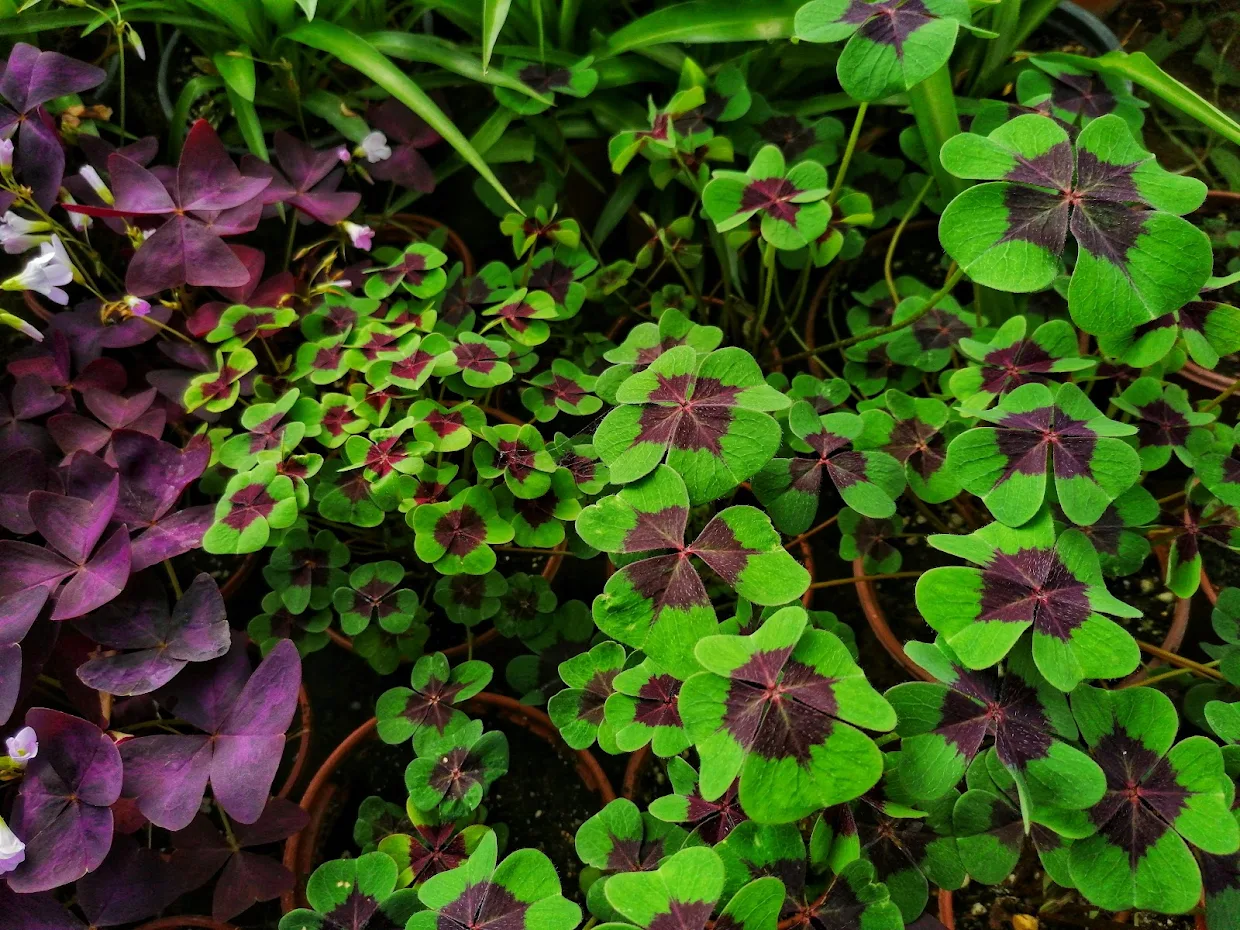Discover Oxalis, the clover-like plant with vibrant leaves and delicate flowers. Learn its care tips, symbolism, and why it’s perfect for home décor
Oxalis, commonly known as wood sorrel, is a delightful plant cherished for its clover-like leaves and delicate, colorful flowers. With over 500 species, it is versatile and suitable for indoor décor or outdoor gardens. Known for its unique charm and low-maintenance requirements, Oxalis makes an excellent addition to any plant lover's collection.
History and Origin
The genus Oxalis is native to various regions, including South America, South Africa, and Europe. Its adaptability to different climates has made it a global favorite. Historically, Oxalis has been used for culinary and medicinal purposes, with its tangy leaves often adding zest to traditional recipes.
Appearance and Characteristics
- Leaves: Oxalis plants are famous for their trifoliate or multi-lobed leaves, resembling a shamrock. These leaves come in shades of green, purple, or burgundy, often with intricate patterns.
- Flowers: Small, dainty flowers in shades of white, yellow, pink, or purple bloom above the foliage.
- Movement: Oxalis exhibits nyctinasty, where its leaves fold during the night or in response to light changes.
- Size: Most Oxalis species are compact, growing to a height of 6-12 inches, making them ideal for tabletops and small garden spaces.
Types
Oxalis has a wide variety of species and cultivars. Here are some popular ones:
| Type | Description |
|---|---|
| Oxalis triangularis | Purple shamrock with striking violet leaves and pink flowers. |
| Oxalis debilis | Green foliage with delicate pink flowers. |
| Oxalis versicolor | Candy-cane oxalis with white flowers edged in red. |
| Oxalis regnellii | Green-leaved variety with white blooms, also known as lucky shamrock. |
Oxalis is often associated with good luck, especially around St. Patrick's Day, due to its shamrock-like leaves. It symbolizes prosperity, joy, and resilience.
While primarily ornamental, some Oxalis species, like Oxalis acetosella, have edible leaves that are rich in vitamin C. These tangy leaves have been used in herbal teas and traditional remedies for centuries. However, excessive consumption can lead to discomfort due to their oxalic acid content.
Cultivation and Care Tips
Oxalis is a hardy plant that requires minimal effort to thrive. Here’s how to care for it:
- Light: Prefers bright, indirect light but can tolerate partial shade.
- Watering: Water moderately, allowing the soil to dry out slightly between watering. Overwatering may cause bulb rot.
- Soil: Use well-draining soil with a mix of loam, sand, and compost.
- Temperature: Thrives in temperatures between 60-75°F (16-24°C). Protect from frost.
- Dormancy: Oxalis may go dormant in the summer. Reduce watering and resume once new growth appears.
- Propagation: Easily propagated through bulbs or division.
Why It Makes a Great Gift
Oxalis plants are compact, visually stunning, and often seen as a symbol of good luck, making them thoughtful gifts for housewarmings or special occasions.
Interesting Facts
- Oxalis is often mistaken for clover, but they are entirely different species.
- The plant's ability to "sleep" by folding its leaves is a response to conserve energy during low light.
- Some species, like Oxalis stricta, are considered weeds due to their rapid growth and adaptability.
Scientific Validity of Claims
Oxalis's vitamin C content and its mild tangy flavor are well-documented, and its ornamental value is backed by its resilience and beauty. However, its oxalic acid content necessitates caution when consumed.
FAQs
Oxalis is a versatile and captivating plant that brings life and vibrancy to any space. Its easy care, symbolic value, and diverse varieties make it an excellent choice for both novice and experienced gardeners. Whether as a decorative indoor plant or a charming addition to outdoor spaces, Oxalis never fails to impress.


.png)









0 Comments